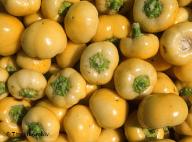Farming handouts no longer EU's biggest cost, Brussels says
 Brussels - Cash handouts to farmers no longer make up the single most expensive part of the European Union's budget, with the bloc now spending more on boosting economic growth and jobs, officials in Brussels announced Friday.
Brussels - Cash handouts to farmers no longer make up the single most expensive part of the European Union's budget, with the bloc now spending more on boosting economic growth and jobs, officials in Brussels announced Friday.
According to figures released by the European Commission, the EU's executive, the 27-member union spent 44 billion euros (69 billion dollars) on employment and economic programmes in 2007, out of a total budget of 114 billion euros.
That figure is 3.7 per cent more than in 2006, and tops the 43 billion euros paid out to farmers, making 2007 the first year in which growth and employment projects were the single biggest category of EU funding recipients.
However, the EU also paid out 12 billion euros on rural development, fisheries and environmental protection - meaning that close on half its budget was still spent in supporting rural and coastal areas.
The union has long been criticized for spending the lion's share of its money on agriculture - a sector which makes up less than 2 per cent of the European economy. In the
1980s, farming support accounted for some two-thirds of the EU's total budget.
Despite reforms in recent years, opponents of the Common Agricultural Policy (CAP) say that it has blocked modernization in the farming sector by paying small and inefficient farms to keep producing goods for which there is no demand.
The issue has regularly sparked flaming rows between France, the single biggest recipient of EU farming money, and Britain.
In 2007, France received over 10 billion euros for farming and rural development - almost 50 per cent more than any other EU country. Britain received 4.2 billion euros, while the largest and poorest of the EU's 2004 entrants, Poland, received 3.1 billion.
Friday's figures did not reveal how much money each state had paid into the budget, leaving it unclear who was the biggest overall beneficiary of EU funding in 2007. (dpa)